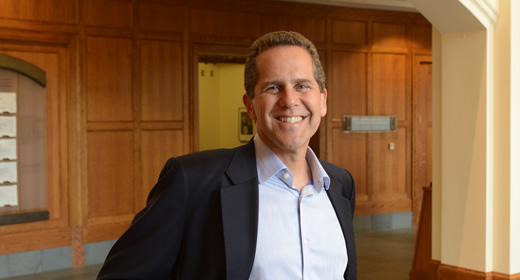
This summer, Ford School Dean Michael Barr served as co-counsel on an amicus brief by leading financial regulation scholars in support of the Consumer Financial Protection Bureau. The suit, brought by a NJ-based mortgage lender that had been fined by the bureau for harmful lending practices, argued that the fine was invalid because the bureau itself--led by a single director who could only be terminated by the President for “inefficiency, neglect of duty, or malfeasance in office”--was unconstitutional.
The D.C. Circuit Court of Appeals sat "en banc" (as a full court) to hear the case in May. Yesterday, the court released its decision in favor of the Consumer Financial Protection Bureau’s legitimacy, as had been argued in the amicus brief filed by Barr and colleagues. In its ruling, the court wrote that PHH’s argument had “no footing in precedent, historical practice, constitutional principle, or the logic of presidential removal power.” Had the court ruled otherwise, it is possible that many of the CFPB’s fines would have been challenged under similar arguments.
Deepak Gupta, who served as co-counsel with Barr and Adam Levitin (Georgetown Law) on the amicus brief, called the ruling “a resounding victory for the Consumer Financial Protection Bureau and for independent agencies generally.” Barr, who was a key architect of the Dodd-Frank Wall Street Reform and Consumer Financial Protection Act that launched the bureau, concurs. “One recent analysis found that the bureau had recovered about $12 billion for Americans impacted by harmful business practices,” Barr said. “It’s an incredibly effective agency that is doing really important work to improve outcomes for consumers. This ruling confirms that its structure is constitutionally sound.”
Despite the court's ruling, the agency will continue to face challenges--both internal and external--in the years ahead. In its ruling, the D.C. Court of Appeals stayed the fine imposed on PHH Corporation by former CFPB director Richard Cordray, pending review. Since then, acting CFPB director Mick Mulvaney has indicated that the bureau will be investigating its administrative adjudication procedures, which led to the PHH fine and many others.
Barr is proud to note that the amicus brief by financial regulation scholars also benefited from the work of a number of talented University of Michigan students. Eight law students from Professor Barr’s “Financial Reform” seminar--Patrick Branson, Victor Ghazal, Anna Greve, Joanna Howard, Cody Marden, Charlie McDonald, Sam Scarritt-Selman and Julie Siegel--contributed research assistance and helped write drafts of the brief.